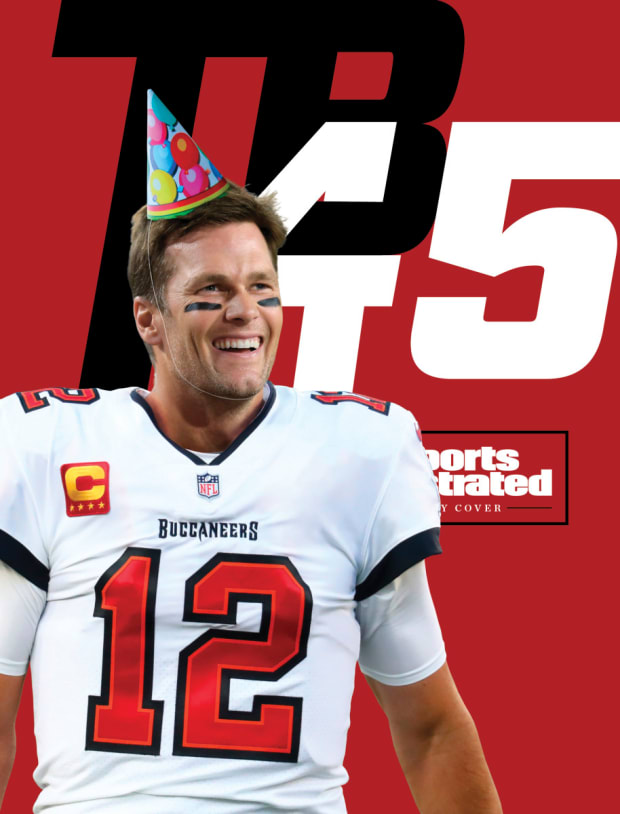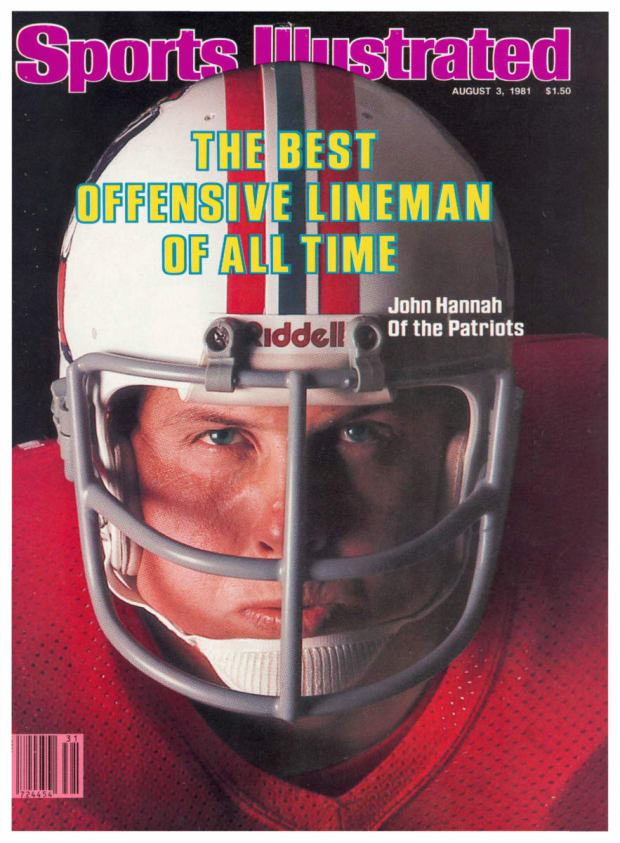Good morning, I’m Dan Gartland. Carve out some time in your day to listen to these Vin Scully calls.
In today’s SI:AM:
🔄 Trade deadline winners and losers
If you're reading this on SI.com, you can sign up to get this free newsletter in your inbox each weekday at SI.com/newsletters.
There will never be another Vin Scully
There’s only one man who could upstage one of the biggest deadline trades in baseball history. For generations of fans, Vin Scully, who died yesterday at age 94, was baseball.
Scully called Dodgers games beginning in 1950 when they were still in Brooklyn and spent 67 years behind the microphone before retiring in 2016. He called games featuring every star from Jackie Robinson, Sandy Koufax and Duke Snider to Clayton Kershaw, Justin Turner and Corey Seager.
“Vin is America’s best friend. (‘Pull up a chair....’) He reached such an exalted position not by talking about himself, not by selling himself, or, in the smarmy terminology of today, by ‘branding’ himself, but by subjugating his ego,” Tom Verducci wrote in 2016. “The game, the story, the moment, the shared experience.... They all matter more.”
Scully was, without a doubt, the most famous baseball announcer in the United States. You can even make a compelling argument that he was the country’s most famous announcer, period—and with good reason. Scully was equally capable of walking an audience through a dull June blowout as he was of rising to the occasion to call a historic moment.
Since the news of his death broke late last night, I’ve spent hours listening to some of Scully’s best work. Here are a few of my favorite calls:
The final three outs of Sandy Koufax’s perfect game (Sept. 9, 1965)
This eight-and-a-half-minute clip is a perfect example of what made Scully great. So many of his best moments can’t be captured in a 30-second snippet. It was his ability to speak eloquently and extemporaneously that put him in a class of his own. The final half-inning of the Koufax game was Scully at his finest, so much so that reading a transcript of the call (which Salon published in 1999) makes it seem like Scully had it all planned out ahead of time.
“Little roller up along first”
In addition to calling Dodgers games, Scully also called three World Series on TV while he worked for NBC Sports. Two of them were all-time classics: 1986 and ’88. Bill Buckner’s error in the 10th inning of Game 6 in ’86 is one of the most iconic plays in World Series history and I’m glad Scully’s call is the one that it will be remembered by.
Kirk Gibson’s walk-off homer in 1988
Like Buckner’s error, the injured Gibson’s walk-off home run in Game 1 of the ’88 World Series stands the test of time. Scully’s call was, predictably, outstanding.
“High flyball into right field! She is… gone!”
Scully then stayed silent for a full minute while the crowd went ballistic before chiming back in with another unforgettable line: “In a year that has been so improbable, the impossible has happened.”
Henry Aaron’s 715th home run
Thank god the Braves were playing the Dodgers when Aaron broke Babe Ruth’s career home run record. Leave it to Scully to not just call the action on the field but put Aaron’s achievement in the appropriate cultural context:
“What a marvelous moment for baseball. What a marvelous moment for Atlanta and the state of Georgia. What a marvelous moment for the country and the world.
“A Black man is getting a standing ovation in the Deep South for breaking a record of an all-time baseball idol. And it is a great moment for all of us, and particularly for Henry Aaron, who was met at home plate, not only by every member of the Braves, but by his father and mother.”
Dwight Clark’s catch
Scully really was a real-life Forrest Gump, wasn’t he? When he called NFL action for CBS Sports, he had the privilege of being the voice behind “The Catch”—Joe Montana’s touchdown pass to Dwight Clark in the 1981 NFC championship game.
Any old game in the middle of the season
Even though he was in the booth for all those historic moments, what made Scully so beloved was the way he called the 162 ordinary Dodgers games every year. His ability to tell a story—about Madison Bumgarner hacking a snake to pieces or Jonny Gomes being attacked by a wolf—seamlessly interwoven with play-by-play was unrivaled and the reason fans around the country kept tuning in.
More on Vin Scully:
- The Beautiful Life of Vin Scully (Tom Verducci)
- From the May 4, 1964 issue of SI: The Transistor Kid (Robert Creamer)
- From the May 10, 2006 issue of SI: The Voice of Baseball: Get to Know Vin Scully, the Man Behind the Mic (Tom Verducci)
- Video: Vin Scully, the voice of the Dodgers, reflects on his Hall of Fame career
The best of Sports Illustrated

For today’s Daily Cover, Greg Bishop compiled 45 thoughts about Tom Brady’s 45th birthday:
Brady is a walking Ready to Feel Old fun fact. He has played against Jon Runyan Jr., whose dad was his former Michigan teammate. He has played with Antoine Winfield Jr., whose dad picked him off in 2001. Bucs rookie Logan Hall was born six days after Brady was drafted.
Emma Baccellieri gives her winners and losers of the MLB trade deadline. … Conor Orr explains how Sue Robinson’s ruling in the Deshaun Watson case is a call for the NFL to “improve both its understanding and policies surrounding sexual harassment, assault and misconduct.” … If you liked Howard Beck’s article about the origins of “One, Two, Three … Cancun!”, the latest episode of SI Weekly features an audio version of the story.
Around the sports world
The Padres and Nationals finally worked out the Juan Soto trade. … The Blue Jays traded for Whit Merrifield, who, as of now, is not able to enter Canada because he is unvaccinated. … The NFL docked the Dolphins two draft picks (including a first-rounder) for their interactions with Tom Brady and Sean Payton. … The USWNT is set to play a friendly in October against newly crowned European champion England. … The NWSL is reportedly facing financial difficulties after a crypto company it had a sponsorship deal with declared bankruptcy.
The top five...
… things I saw yesterday:
5. Adrian Wojnarowski’s candid photo of Jeff Passan breaking the Juan Soto trade news.
4. LeBron James and his two sons dunking at the Lakers’ facility.
3. Oneil Cruz’s home run to dead center on a pitch off the plate.
2. 30-year-old Nationals rookie Joey Meneses with a home run in his first MLB game.
1. The Dodgers’ Vin Scully tribute video.
SIQ
When Joe Niekro was caught on the mound with a nail file in his back pocket on this day in 1987, how many days was he suspended for?
Yesterday’s SIQ: Who have been the five Yankees captains since Thurman Munson died in a plane crash on Aug. 2, 1979?
Answer: Graig Nettles (1982–84), Willie Randolph and Ron Guidry (co-captains, ’86–88), Don Mattingly (’91–95) and Derek Jeter (2003–14).
The Yankees had allowed Munson to learn to fly so that he could see his family on his days off. He was practicing takeoffs and landings in his plane near his home in Ohio when the aircraft struck a tree and crashed short of the runway. Two passengers, a friend of Munson’s and a flight instructor, escaped the burning plane after trying to pull Munson from the wreckage. Munson, an autopsy later found, had fractured his spine in the crash and was paralyzed, thus unable to escape the wreckage. He was 32.
Munson’s funeral was held on Aug. 6 in Canton and was attended by over 500 people, including every player on the Yankees. The team arrived from New York by charter flight. Lou Piniella, described by The New York Times as “perhaps Munson’s closest friend in baseball”, delivered a reading during the Catholic mass. Another friend, Bobby Murcer, delivered a eulogy.
“Whatever he was to each one of us, he should be remembered [as] a man who followed the basic principles of life; he lived with his wife, Diana, and his three children; he led his team to two world championships and he loved the game, his friends and, most of all, his family,” Murcer said, according to the Times.
After the funeral, the Yankees flew back to New York for a night game against the division-leading Orioles. Murcer drove in all five Yankees runs, including a three-run walk-off homer in the ninth.
From the Vault: Aug. 3, 1981

Frank White
The cover story inside the Aug. 3, 1981, issue of SI made a bold claim.
“The greatest offensive lineman in history is playing right now and probably hasn’t even reached his peak,” Paul Zimmerman wrote. “He is John Hannah, the left guard for the New England Patriots, out of Alabama.”
By today’s standards, Hannah was diminutive for a guard. Listed at 6' 2½" and weighing somewhere between 260 and 270 pounds (“no lineman can honestly claim only one weight,” Zimmerman wrote), Hannah played guard at the same weight as Rob Gronkowski while standing 3½ inches shorter. Last year’s first-team All-Pro guards, Zack Martin and Joel Bitonio, meanwhile, are both listed at 6' 4" and at least 315 pounds.
Hannah was no shrimp, though. Zimmerman describes his legs as “incredibly massive chunks of concrete.” Those legs were strong but they were also nimble. His greatest attribute was his speed and agility.
“For all his size and explosiveness and straight-ahead speed,” Patriots general manager Bucko Kilroy said, “John has something none of the others ever had, and that’s phenomenal, repeat, phenomenal lateral agility and balance, the same as defensive backs. You’ll watch his man stunt around the opposite end, and John will just stay with him. He’ll slide along like a toe dancer, a tippy-toe. And that’s a 270-pound man doing that, a guy capable of positively annihilating an opponent playing him straight up.”
As for Zimmerman’s assertion that Hannah was the NFL’s best lineman ever at the time, it’s tough to argue with. When The Athletic ranked the 100 best players in NFL history last year, Hannah came in at No. 25. The only offensive lineman ahead of him was Anthony Muñoz (at No. 12), who had only played one season by the time Zimmerman’s story was written.
Hannah, somewhat surprisingly, became the first Patriots player to be inducted into the Pro Football Hall of Fame when he was enshrined in 1991. He’s since been joined by eight other players (most recently Richard Seymour) and one coach (Bill Parcells).
Check out more of SI’s archives and historic images at vault.si.com.







